There needs to be a policy to make people feel secure in growing rice.
Voters in Hanoi city suggested that after the arrangement of the two-level local government, it is necessary to pay attention to directing and implementing Resolution No. 19-NQ/TW on agriculture, farmers, and rural areas until 2030, with a vision to 2045. This is an important foundation to promote the contributions of nearly 18 million agricultural workers, and at the same time, to go hand in hand with Resolution No. 68-NQ/TW on private economic development, creating breakthroughs in the country's development in the coming period. Voters also suggested that there should be policies to protect land specialized in rice cultivation, improve farmers' lives, so that farmers can feel secure in growing rice, and ensure sustainable national food security.
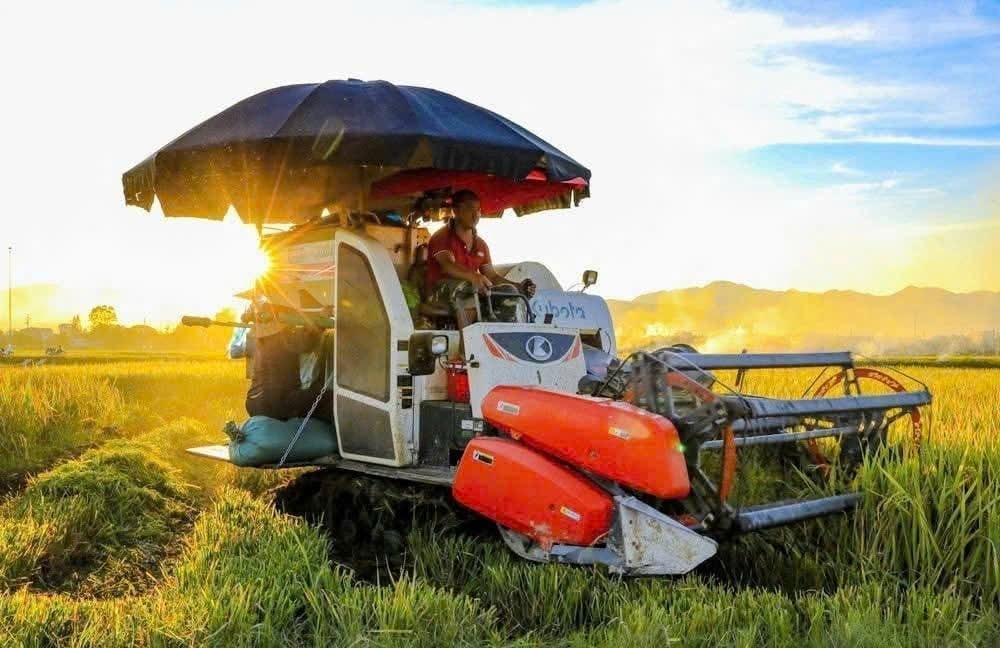
The Ministry of Agriculture and Environment said there are many policies to protect rice-growing land and improve farmers' income and lives. Photo: Hoang Chau.
Regarding this proposal, the Ministry of Agriculture and Environment said that in order to implement Resolution No. 19-NQ/TW on agriculture, farmers, and rural areas until 2030, with a vision to 2045, the Government has issued an Action Program in Resolution No. 26/NQ-CP. After more than two years of implementing Resolution No. 26/NQ-CP, specific goals and tasks have been and are being implemented on schedule and ensuring quality and efficiency. Many mechanisms and policies have been amended, supplemented, and issued, notably the Land Law with additional regulations in the direction of promoting land accumulation and concentration to develop the land use market in agriculture, encouraging concentrated, large-scale agricultural commodity production, etc.
The Government and the Prime Minister are and will continue to direct ministries, branches and localities to synchronously and effectively deploy tasks and solutions to implement: Resolution No. 19-NQ/TW; Strategy for sustainable agricultural and rural development for the 2021-2030 period, with a vision to 2050; Agricultural restructuring plan; resolutions, strategies, programs, projects, planning and development plans for the agricultural and environmental sectors. These orientations are in parallel with Resolution No. 68-NQ/TW of the Politburo on private economic development, creating development breakthroughs in the coming period of the country.
Protecting rice-growing land and ensuring food security is a consistent policy of the Party and State of Vietnam. This spirit is institutionalized in Resolution No. 18-NQ/TW dated June 16, 2022 of the 13th Party Central Committee on "Strengthening management and strict control of land use conversion, especially rice-growing land, protective forest land, special-use forest land, and production forest land that are natural forests". At the same time, inheriting the provisions of land law through the periods, the current land law continues to stipulate the strict protection, management and use of rice-growing land.
Many policies to support rice growing areas
In provincial land use planning, localities must delimit land use areas that need strict management: rice-growing land, special-use forest land, protective forest land, and production forest land that is natural forest. When changing the purpose from rice-growing land to another purpose, land users must ask for permission from competent state agencies. Individuals who are not directly engaged in agricultural production and receive transfers or donations of rice-growing land use rights exceeding the limit prescribed in Article 176 of the 2024 Land Law must establish an economic organization and have a rice-growing land use plan approved by the Chairman of the People's Committee at the commune level, except in cases where the recipient is an heir. Economic organizations that receive transfers of agricultural land use rights must have an agricultural land use plan approved by the Chairman of the People's Committee at the commune level.
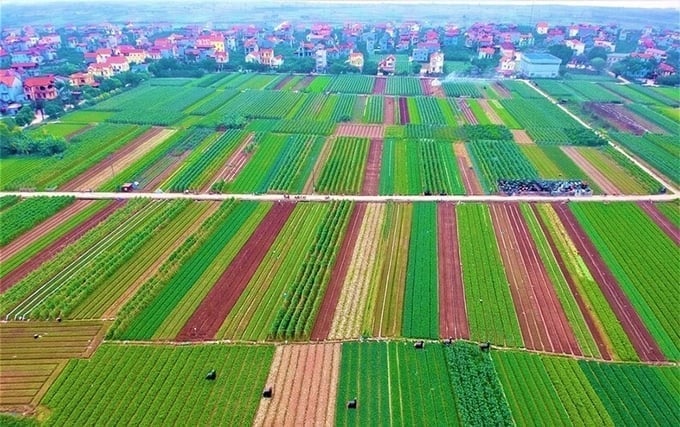
In order to exploit and use agricultural land effectively, improve farmers' lives, and ensure sustainable national food security, the 2024 Land Law stipulates that agricultural land can be used for multiple purposes. Photo: Minh Phuc.
In order to exploit and use agricultural land effectively, improve farmers' lives, and ensure sustainable national food security, Point a, Clause 1, Article 218 of the 2024 Land Law stipulates that "agricultural land is used in combination with commercial, service, livestock, and medicinal plant growing purposes". This provision includes the combined multi-purpose use of rice-growing land for commercial, service, livestock, and medicinal plant growing purposes.
At the same time, Clause 2, Article 182 of the 2024 Land Law stipulates that the State has policies to support and invest in building infrastructure, applying modern science and technology to areas planned for high-yield and high-quality rice cultivation; protecting rice-growing land, and limiting the conversion of rice-growing land to non-agricultural purposes.
In addition, the Government has issued Decree No. 112/2024/ND-CP detailing regulations on rice land. The Decree specifies a number of policies to support localities in rice production, such as: Support of VND 1,500,000/ha/year for specialized rice land and VND 750,000/ha/year for remaining rice land, additional support of VND 1,500,000/ha/year for specialized rice land in rice growing planning areas with high productivity and quality; this funding source is used to support users of rice land in using legal rice varieties, applying production processes, technical advances, building demonstration models, agricultural extension activities, linking production and product consumption. In addition, funding is also used to improve and enhance the quality of rice land, evaluate soil properties, and repair and maintain agricultural and rural infrastructure.
This Decree also stipulates that the State invests in developing infrastructure, with priority given to irrigation and traffic works in areas planned for high-yield and high-quality rice cultivation. The State budget supports up to 100% of the cost when investing in the construction of irrigation and traffic works in areas planned for high-yield and high-quality rice cultivation, projects applying rice production processes to reduce greenhouse gas emissions, circular economic models, organic production, or linking rice production according to value chains (with an area of 500 hectares or more) and projects processing food products, producing biological products, processing raw materials and high-tech products from rice and rice (with a total investment of 30 billion VND or more) are supported by the State budget up to 40% but not more than 15 billion VND/project for purchasing production lines, equipment, technology, and technology copyrights.
Cooperatives and cooperative unions also receive infrastructure investment support and financial support for projects on developing high-quality rice, organic production, value chain linkage and processing of rice products (with an area of 100 hectares or more) up to a maximum of 100% of investment capital but not exceeding VND5 billion/project.
The Ministry of Agriculture and Environment said that the above policies show the Party and State's concern in protecting rice-growing land and improving farmers' income and living standards. At the same time, the policy also encourages economic sectors, especially the private and collective economies, to participate in the restructuring and development of agriculture in a sustainable and modern direction, contributing to ensuring national food security and creating breakthroughs for the country's development.
Source: https://nongnghiepmoitruong.vn/dong-hanh-voi-nong-dan-vi-an-ninh-luong-thuc-quoc-gia-d782658.html



![[Photo] Closing of the 14th Conference of the 13th Party Central Committee](https://vphoto.vietnam.vn/thumb/1200x675/vietnam/resource/IMAGE/2025/11/06/1762404919012_a1-bnd-5975-5183-jpg.webp)




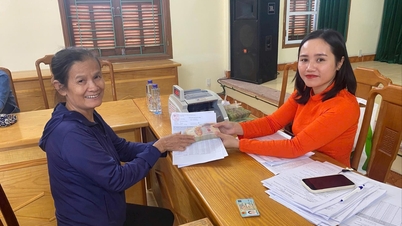

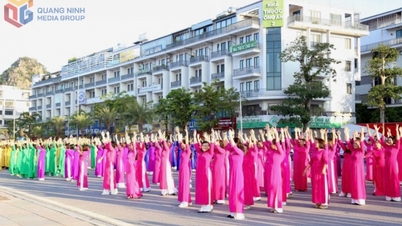

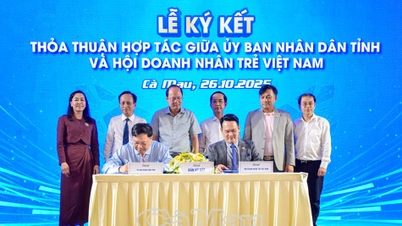

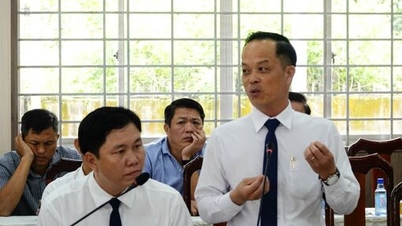

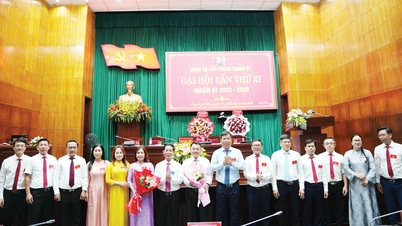

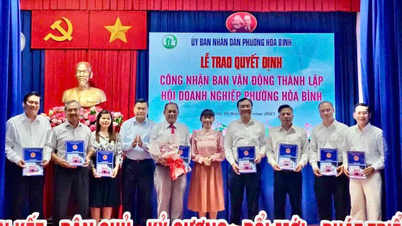


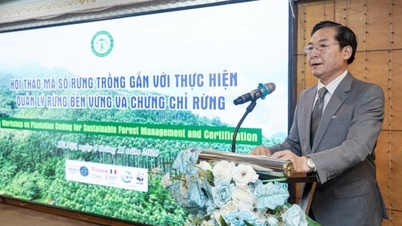

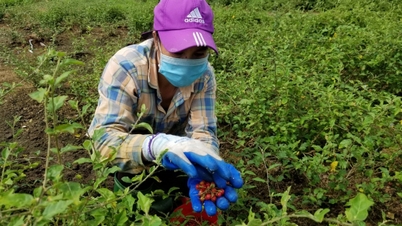

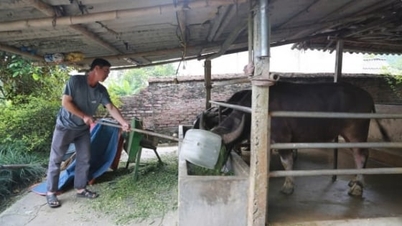




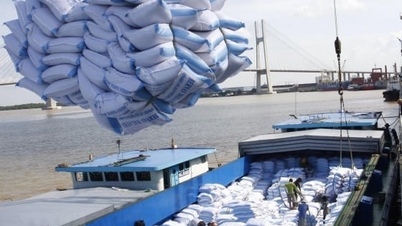
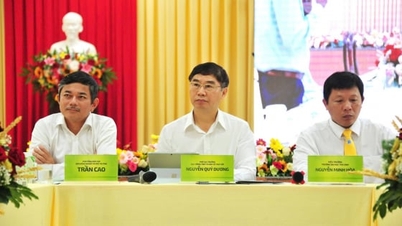

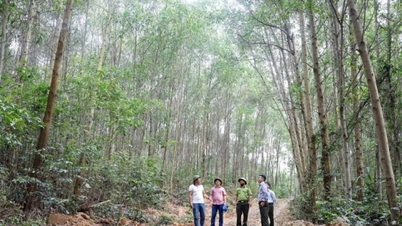

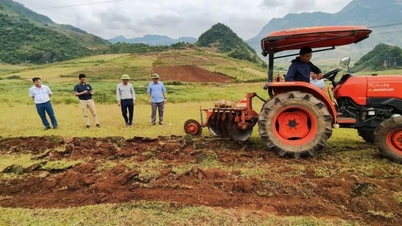







































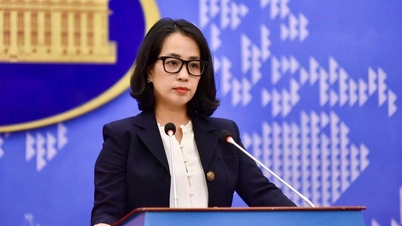
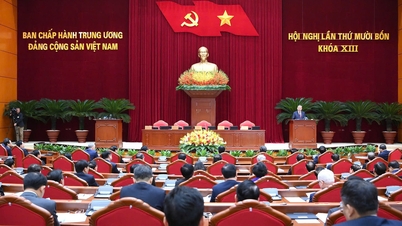
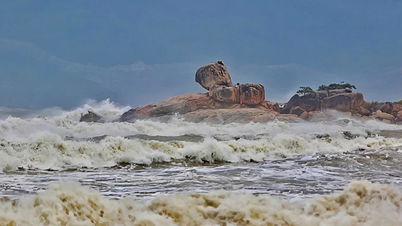

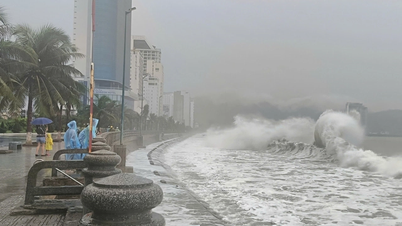
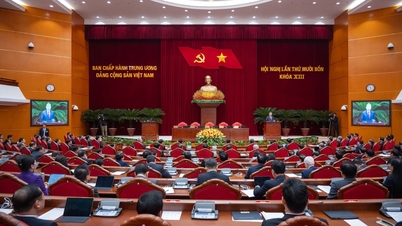






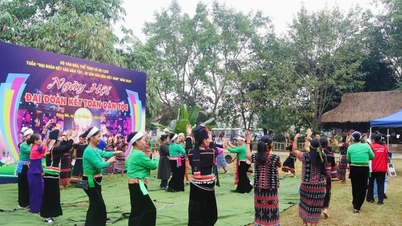
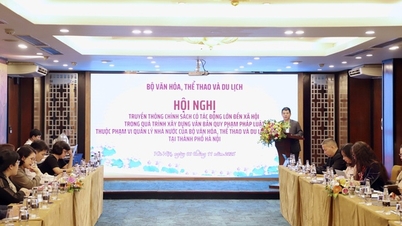
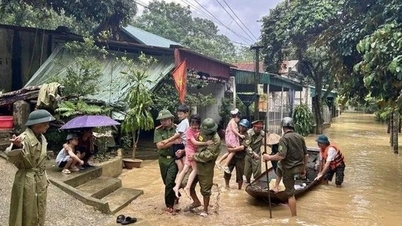
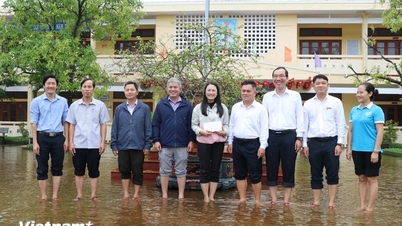
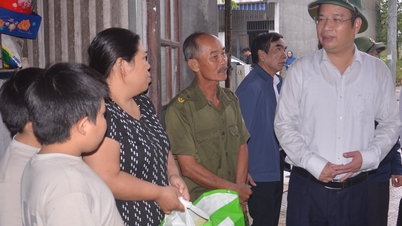
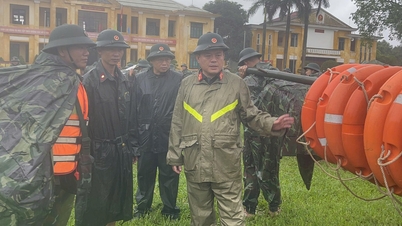
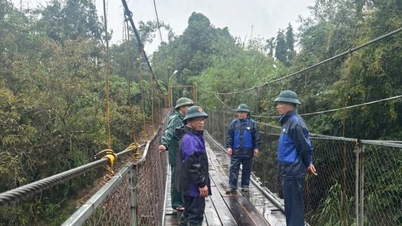

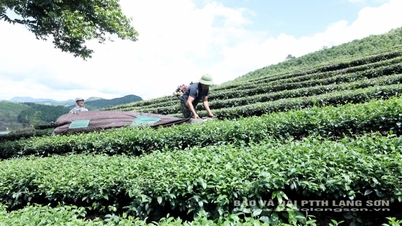

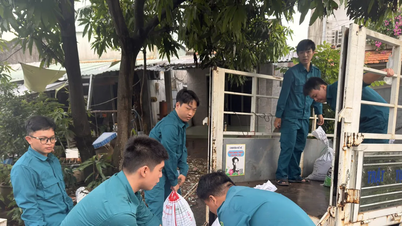











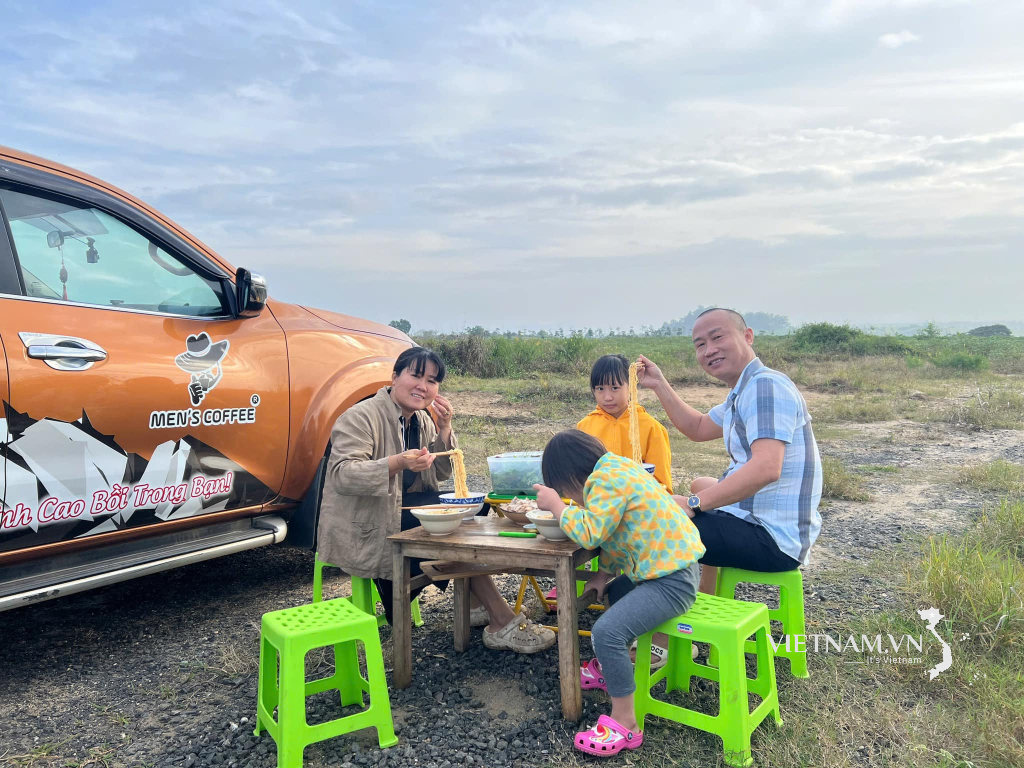
Comment (0)